First-gen medical students share their experiences and messages for others on the same path
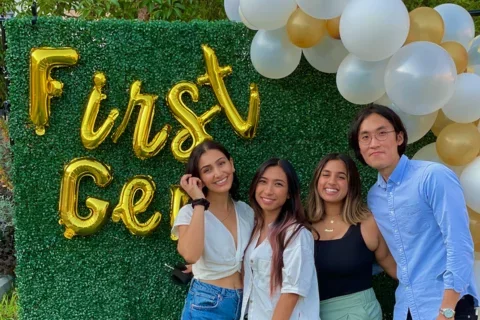
'I come from that perspective where education and being able to just do something else besides survival is a privilege,' says DGSOM student Kendra Arriaga-Castellanos.
By Jocelyn Apodaca Schlossberg
In commemoration of the National First-Generation College Celebration, Nov. 8, which honors the Higher Education Act of 1965, we spoke with the four co-chairs of the First-Gen Students at David Geffen School of Medicine organization, who shared their experiences and how their backgrounds and cultures have shaped their outlook on medicine.
The Higher Education Act of 1965 is a federal law that provides financial assistance and educational resources for students in postsecondary and higher education.
To be a first-generation American, college graduate or both, brings unique pressures that few outside the identity can understand. It’s an “in between place,” straddling two or more cultures, socioeconomic statuses, immigration statuses, education systems and more.
Each of the four co-chairs and second-year medical students have unique backgrounds but share many similarities in their experiences.
Ava Mousavi, 25, and her family are refugees from Iran. They immigrated to the U.S. when Mousavi was 6.
“It really adds to my first-gen identity because in Iran, due to religious persecution, my family wasn't able to attend college. Coming here, they came with a goal of attending college as well, but due to having to work all the time, my parents weren't able to,” she says.
Mousavi is the first in her immediate and extended family to attend college. She is part of the PRIME-LA program, which focuses on working in underserved communities.
Like Mousavi, Sam Lee, 29, and his family immigrated to the U.S. – in Lee’s case from Korea, when he was a toddler.
“It was a classic American Dream story, but similarly, my parents were working all the time,” Lee says. “To me, the theme of our family's fortune story is, how do you make the dream work from the ground up, from scratch, when you don't have the foundational institutional background or knowledge that some of your peers might be getting.”
Monica Le, 28, and Kendra Arriaga-Castellanos, 25, are first-generation Americans. Both were born in California – Le in San Diego and Arriaga-Castellanos in South Central Los Angeles.
Le’s family comes from Vietnam, where they fled an unstable period including war, poverty and famine.
“They were all farmers in Vietnam and here they’re nail technicians and manicurists,” she says. “None of my family actually received higher education. I'm the first of the family, both immediate and extended, to go to college and also the first future doctor. They're really proud about that.”
Like Mousavi, Le is part of the PRIME-LA program.
Arriaga-Castellanos’ family is from Honduras. She says they didn’t have the opportunity to pursue their dreams – they were focused on work and survival.
“I come from that perspective where education and being able to just do something else besides survival is a privilege,” she says.
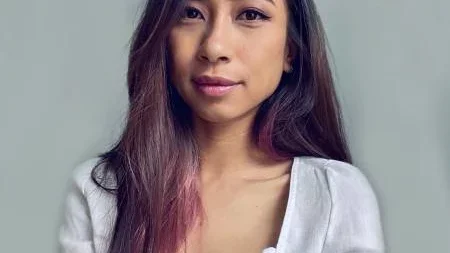
Arriaga-Castellanos is part of the Charles R. Drew/UCLA Medical Education Program, a four-year program dedicated to working with underserved communities.
“This is very special to me because I was born across the street from Drew at the Martin Luther King Jr. Community Hospital. So that community is home for me,” she says. “I hope to be there in the long run.”
To be first-gen is both a blessing and a curse. The students shared feelings of privilege, pressure and sometimes shame.
Q: What does it mean to you to be first-gen?
Lee: A lot of first-gen students grew up in school systems and in environments where we tried our hardest to fit in. The quintessential example is when it comes to lunchtime, bringing your own little lunch box with food that you grew up eating all the time, but it's completely foreign. Then you try your best to fit in by bringing sandwiches, instead. As a first gen now, I’m going in the opposite direction and leaning hard into the things that defined my growing up process.
Le: I think there's a lot of pressure standing on the shoulders of the giants before us. Coming into (academic and medical) spaces sometimes can feel very lonely. Having space to be recognized and celebrated is very powerful because now we all can connect. We all can share stories and have a way to support each other and feel at home.
Arriaga-Castellanos: When you go through some adversity, it breeds resilience and resourcefulness. As first-gen, we have this very special position in life with awareness in between cultures, in between survival and pursuing what we love. It's beautiful that we get to see from this perspective and see what it's like to work every day of your life and what it is to be an immigrant, what it is to be an outsider in academics and an outsider in this culture. We have a foot in two worlds. We have a foot inside academia and in our culture. No generation before us or after us will get to see it in this way because we are the ones to bridge it.
Mousavi: After all these years of hard work, it's such a huge privilege to be the first one of many generations to be able to pass this barrier that so many of my family members were stuck in. To be the first one to transcend that is a huge privilege.
Mousavi and Le say mentorship has been essential to their journey – both receiving and now being in a position to share expertise and support.
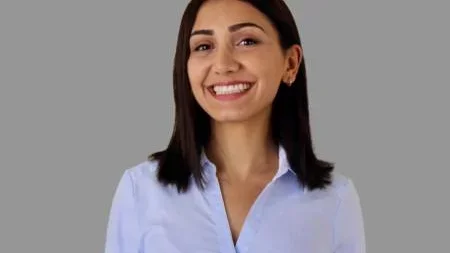
“That was the only way I was able to get to college,” Mousavi says of mentors that provided her with knowledge, support and tools. “Now being able to be a mentor to others is really heartwarming because it feels like I can give something back – whether with my cousins, younger brother or community. It feels really good to be able to surpass this barrier that is so prevalent among immigrant and low-income communities, where you feel like you have to be stuck in this working class. It really is about survival most of the time.”
Q: What have been some of your challenges and successes as a first-gen student?
Mousavi: There's just so much hidden curriculum in just getting into college, let alone medical school, like navigating financial aid. I remember watching TV shows and movies as a kid and they would always talk about how expensive college was and how their parents had been saving up from day one of their birth. This made me feel like, well, I guess that means I can't go to college.
Le: There’s this trial-and-error process that comes along with being first-gen. For me, my success is being here. I'm in a program that is my most ideal program, I’m part of PRIME-LA, I get to work with underserved communities, get a master’s degree and be at this amazing school surrounded by really amazing people who are also passionate about the work that they do.
But that journey was not easy. I was told multiple times, by multiple people in undergrad that I was not going to be a doctor, that my grades were not it and that I should switch out and do something else. I think about this a lot. I think it traumatized me a bit.
Arriaga-Castellanos: I feel like I've gone through my undergrad, and even medical school, sometimes feeling like I missed out on an opportunity because I didn't know about it or I didn't network enough, or ask for help, when I think I should have.
On the other side of that, I think the success is knowing I got here by my own merits and own strength. And not just that, but I got here with my village, my community, so much support and so much love. This wouldn't have been possible without my peers and mentors.
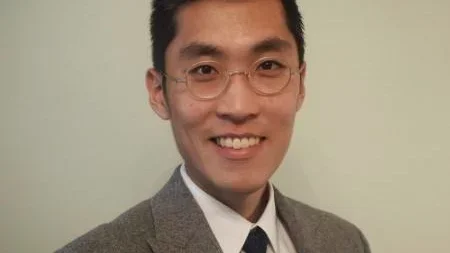
Q: How would you like to give back to your family or community?
Lee: It has to do with the current state of our health care system and how it doesn't cater to the needs and demands of a very specific population in the U.S. right now. I grew up with my parents not believing that their concerns merited the attention of health care at large. I would love to see first-gen and immigrant families and communities feel like that health care system is meeting them at their doorstep.
Arriaga-Castellano: I saw health care from an immigrant’s perspective, where you either have a lack of quality health care or don't have health care at all because of a lack of health insurance. You couldn't communicate with your physician because they couldn't understand you and sometimes they couldn’t even speak your language. One of my goals is to represent the language, the culture and the community that I come from. My dream is to be able to have a free clinic and provide care for communities that don’t have health insurance. Patients will come into a space where they are welcomed, understood and where they can get the help that they need, regardless of their situation.
Mousavi: One of my biggest goals is to be able to provide for my family financially. They’ve done back-breaking work throughout these years that are leaving them disabled at ages 40 and 50. I’m hoping I can be able to relieve some of that financial burden.
It's also important to realize the intergenerational debt that accrues by not giving enough financial aid for students to get to the next stage. Getting admitted into college is a huge feat to overcome, but that's just the first step. We really can't pass this barrier if we aren't financially supported and I think that's the biggest worry for me.
Le: A lot of us have been the translator for our family, the people who navigated this new environment and advocated for them in different settings, including health care. One way to give back to not only my family, but communities is to advocate for health. I know what it feels like to not have health insurance.
Q: What keeps you motivated?
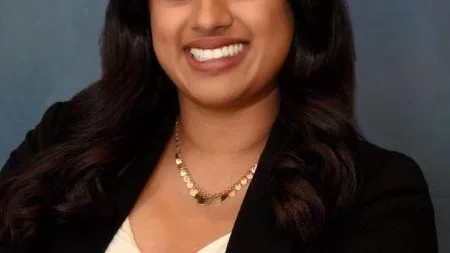
Arriaga-Castellanos: My parents have worked their entire lives and it's not light work, either. They're laborers, with back-breaking jobs. During high school and growing up I'd go work with them on the weekends or during summer breaks. My dad is a handyman and mom cleans homes. I'd go and clean homes and I would help my dad paint homes or install electrical outlets and cut tile. They wake up at the crack of dawn and don't come back till it's dark. Now I'm in this position where I get to sit at a desk and learn and pursue something that I love. What a privilege this is. It's a beautiful life I get to live in comparison. So that perspective is what keeps me going each and every day.
Le: I remember sitting in the back of the nail salon with my brother, eating food in this little room and looking out, seeing my parents work really hard. This motivates me because I see my parents in the way I do and I realize that there's so many other people out there just like them who have families and are trying to provide, who do these laborious jobs and they're met with such terrible health outcomes because our medical system currently doesn't cater to their population.
Trying to pursue something I love while pushing for health equity is something I'm passionate about and something that stems from the family, the community and the things I've seen growing up.
Mousavi: Something else that really motivates me is recognizing that if my family had stayed in Iran, it would have been illegal for me to attend college. In general, it's really hard for women around the world to get education. That perspective reminds me that it's truly a privilege to be here. I'm a bridge for the generations that come after me.
Q: What would you say to other first-gen students or future first-gen students that are at the beginning of their journey?
Lee: Don't be afraid to share your story. I personally had a lot of difficulty reaching out to people for help. I would have no problem Googling stuff, but I think a lot of the non-material but very important, substantive benefits that I got were from talking to people, networking and generating the energy to even apply to medical school. Part of it was understanding that I could do it and a lot of that came from talking to people that I was working with at the hospital.
Reach out early and often. Don't think that your situation is impossible.
Mousavi: Be kind to yourself. It's easy for us to be our worst critics because we carry the burden of all the weight from our previous family members and ancestors who really wanted to get here. Just remember that you can do it! Don't self-doubt.



